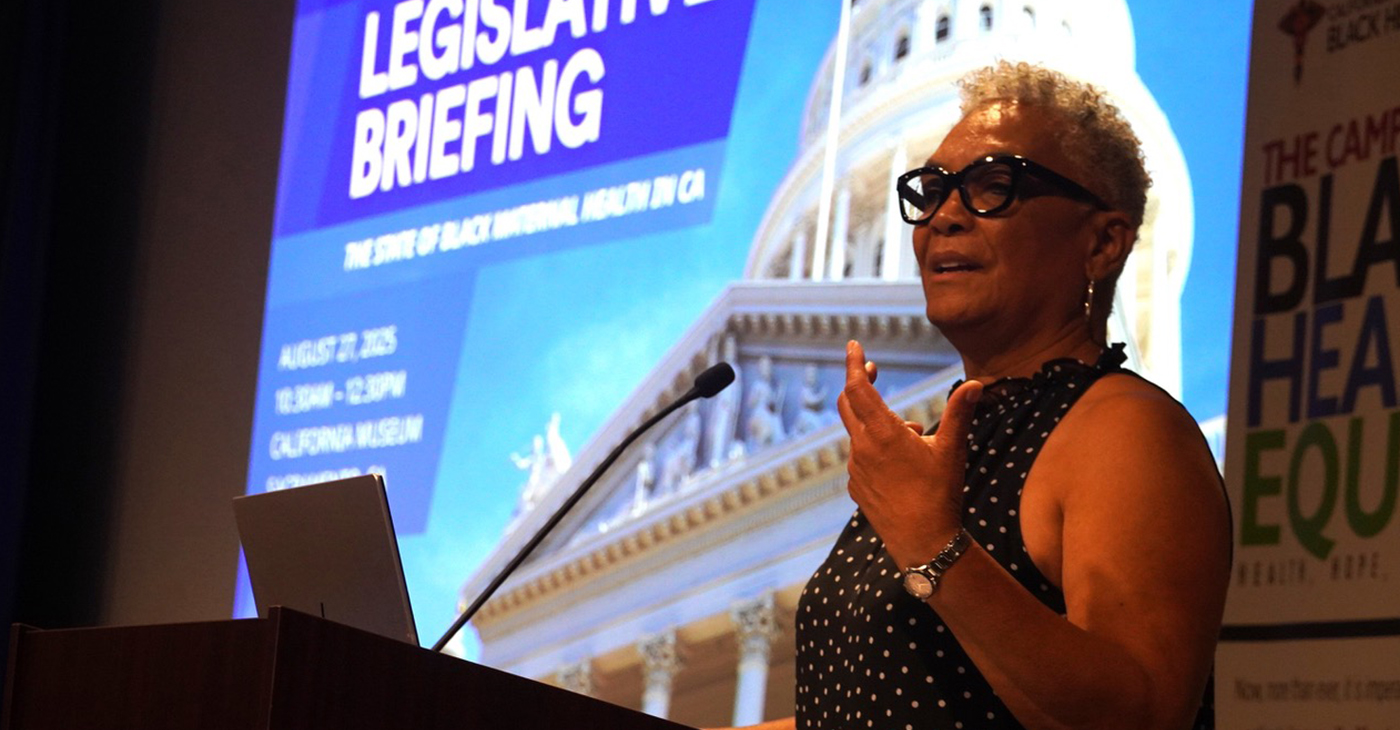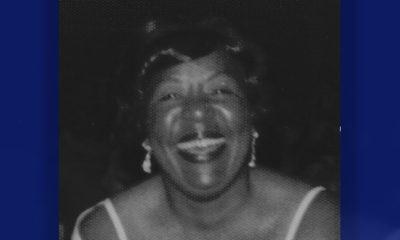Family
Edgar “Dooky” Chase, IV — Lessons my Grandmother taught me: Pray, Work and Do for Others
NEW ORLEANS DATA NEWS WEEKLY — The Chase family is one that is close-knit with a commitment to serving others. It is in this spirit that the Legacy of Leah Chase lives on through those lives she’s touched. Data News Weekly had the opportunity to speak with Edgar “Dooky” Chase, IV, the grandson of Leah Chase, who is also the Owner and Chef of Dook’s Place located inside the Louis Armstrong Airport. Speaking of the importance of his grandmother and her amazing life and how she shaped them to pursue greatness he says, “The life and legacy of Leah Chase in terms of our family, she was the matriarch, the foundation and building block for all we do.” Continuing he says, “She taught every generation through the four walls of the restaurant not only about the industry, but about life introducing us to food, culture, art but most importantly about respecting people, about being inclusive.”
By Edwin Buggage
The Building Blocks of Greatness
The Chase family is one that is close-knit with a commitment to serving others. It is in this spirit that the Legacy of Leah Chase lives on through those lives she’s touched. Data News Weekly had the opportunity to speak with Edgar “Dooky” Chase, IV, the grandson of Leah Chase, who is also the Owner and Chef of Dook’s Place located inside the Louis Armstrong Airport. Speaking of the importance of his grandmother and her amazing life and how she shaped them to pursue greatness he says, “The life and legacy of Leah Chase in terms of our family, she was the matriarch, the foundation and building block for all we do.” Continuing he says, “She taught every generation through the four walls of the restaurant not only about the industry, but about life introducing us to food, culture, art but most importantly about respecting people, about being inclusive.”
To Whom Much Who Is Given Much Is Required
Many who mention Mrs. Chase notes that’s what guided her life was a set of values and practices handed down from her father. “My grandmother’s motto she lived by was “pray, work and do for others.” That’s what was preached to her from her father and she passed it down to her children and they passed it down to us the grandkids and the great grandkids and that was a seed planted into us and what we will continue to live by.” While knowing of her impact on their lives; the family was surprised to hear stories of all the incredible things she did for others. “We were able to witness some, but we had no idea of the magnitude of the lives she touched and was loved by so many people.”
Building Bridges and Bringing a Community Together
Speaking with pride of his grandmother and her contribution to the lives of so many he says, “That is how she lived her life. The outpouring of support we’ve been getting is unbelievable and that is through the media, community and around the world. It’s really been uplifting to my family, it’s been inspirational not only to see her impact on so many people but it has been a driving force to sink into us that passion she had to do that we have to; to continue that legacy to pray work and do for others the same way she did.”
Leah Chase was true to the Spirit of New Orleans and being the bridge that brought people together.
“It was the love of people, that’s what she had. The love of community and that’s where her appreciation for art, food and music came — the things that bring the community together. Just the love of people and making them feel good that made her happy.”
Feeding the Soul with Love and Compassion
As he speaks of the life of his grandmother, there is emotion coming out as he composes himself speaking about her life and journey, “When we read these stories of how many lives she’s touched it sometimes brings us to tears thinking how she’s impacted our lives but WOW, look at all the people she’s helped and in many ways, made the world a better place spreading so much love and positivity.”
In a moment where his voice lights up thinking of the Life of Leah Chase he remarks, “I am fortunate and blessed to have had her as a grandparent, but even if she wasn’t, we were fortunate to have her in our presence being a truly phenomenal woman throughout her life. She will be missed and I hope the community and all the people who have been showing us love and support keep her in their spirit and that’s what she would want us to do — and pray, work and do for others.”
This article originally appeared in the New Orleans Data News Weekly.
Activism
Sacramento: Lawmakers Hear From Health Advocates on “State of Black Maternal Health”
Participants highlighted several past and current bills going through the state Legislature that focus on improving maternal health equity. The proposals address systemic inequities to improve the healthcare experiences of Black women during pregnancy, labor, and postpartum.

By Antonio Ray Harvey, California Black Media
Adjoa Jones is a Los Angeles-based health and community leader who has dedicated her career to advocating for equitable birth outcomes for Black mothers and infants.
Participating in a legislative briefing hosted by the California Black Health Network (CBHN) on Aug. 27, Jones shared stories that shed light on the disproportionately high rate of pregnancy-related complications and deaths among Black women.
Two Black women in Southern California, Jones says, suddenly passed away after giving birth. From Jones’s perspective, those maternal mortalities could have been prevented.
“I come to you speaking from the voices of our community. From the stories of two unforgettable mothers, but it really speaks to the most preventable tragedies,” said, Jones, who is the Director of African American Infant and Maternal Mortality Prevention Initiative at the L.A. County Department.
“It’s not just impacting California, but our nation far and wide,” Jones added during the event titled “The State of Black Maternal Health” and held at the California State Museum in Sacramento.
Participants highlighted several past and current bills going through the state Legislature that focus on improving maternal health equity. The proposals address systemic inequities to improve the healthcare experiences of Black women during pregnancy, labor, and postpartum.
Panelists included Sandra Poole, Health Policy advocate for the Western Center on Law and Poverty, and Brittany Chambers, Associate Professor for the Department of Human Ecology at the University of California at Davis.
Other panelists were Palav Babaria, Deputy Director for the California Department of Health Care Services, and Zea Malawa, Director of Expecting Justice.
Rhonda Smith, the Executive Director of CBHN, served as the host and moderator of the briefing.
“There are amazing and incredible women who are doing amazing work here in the state,” Smith said of the panelists who discussed potential policy solutions and accountability.
During Jones’ presentation, she shared the tragic stories of two women. One was April Valentine, who died on Jan. 10, 2023, after giving birth at Centinela Hospital Medical Center in Inglewood.
According to reports, Valentine died from a blood clot, a pulmonary embolism, that formed in her leg and circulated to her lung. A well-known complication during pregnancy. Valentine’s family members said her condition was preventable, and they filed a wrongful-death claim.
The second woman, 32-year-old Briget Cromer, died in 2023 at California Hospital Medical Center, hours after giving birth to her fifth child. Her family believes her death was due to medical negligence.
Her family’s legal team filed a formal complaint with the U.S. Department of Health and Human Services (USDHH) alleging systemic racial bias in care.
According to the California Department of Public Health, Black women are more likely than their counterparts to die during pregnancy. They represent 5% pregnancies in the state but account for 21% of pregnancy-related deaths.
“We’re doing all that we can to ensure that pregnancy is uplifted (and) pregnancy is a place that’s where folks can enjoy the journey, Jones said.
Sen. Akilah Weber Pierson (D-San Diego), an obstetrician-gynecologist, was the keynote speaker.
“Here in California, we tragically lose another mother due to pregnancy-related complications every five days,” Weber Pierson said. “Here and nationally, Black mothers are three to four times likely to be one of those mothers lost. That’s coming from 40% of maternal deaths.”
Activism
Painter Carla J. Lawson Captures Black Elegance in Bold Prints for Oakland’s Black-Eyed Pea Festival
As a Black woman, Lawson values the connection between her art and her community. She said that her art “needs to feel like Black people to me,” in hopes that her art will culturally resonate with others. Many parts of the Black community inspire her, but often what stands out to her is history. She also talked about being inspired by Black children, by their laughter and joy.

By Daisha Williams
Vacaville painter Carla Lawson invites viewers to her web page with these words: “I create from a center of love and joy, bringing to life the rhythms of my mind through the usage of various mediums.”
Art was Lawson’s hobby when she was young. She worked in retail before devoting herself to painting 16 years ago, with the encouragement of her mother, who didn’t want Carla to have regrets.
As a Black woman, Lawson values the connection between her art and her community. She said that her art “needs to feel like Black people to me,” in hopes that her art will culturally resonate with others. Many parts of the Black community inspire her, but often what stands out to her is history. She also talked about being inspired by Black children, by their laughter and joy.
For example, her Black ballerina-themed prints were initially made to make them look like they are actually dancing because of the way that ink flows and drips. Black ballerinas are often undervalued, but these pieces accurately capture their beauty and grace.
Lawson is almost entirely self-taught, with the exception of two classes at the Academy of Art in the summer of 2000. Lawson continues to attain skill, recently focusing on human anatomy to bring more accuracy to her work while also pushing experimentation with different paints, brushes, and other materials to see how they work together. It often takes her many hours to complete a painting, and sometimes multiple days.
With that devoted practice, she says, over time, the range of her work has grown, and the canvases have gotten bigger!
Lawson sells primarily at festivals and pop-up events in the Bay Area. Her work is also showcased at restaurants and cafes, and she is working toward securing a gallery showing. Prints are for sale on her website, carla-js-art.square.site.
Carla Lawson will be one of the artists at the 10th Annual Black-Eyed Pea Festival, a celebration of traditional African American music, food, and art, on Sat. Sept. 13, from 11 a.m. to 6 p.m. at Marston Campbell Park, 17th and West streets in West Oakland. For more info, go to Oakbepf.com or call 510-332-5851. Bring a chair or blanket for the lawn or reserve a table for six for $150 at https://www.tickettailor.com/events/omnirainstitute/1799229
Alameda County
Mayor Barbara Lee Celebrates Successful National Night Out 2025 with Participation Across Oakland
The annual community-building event brought together residents from East Oakland to West Oakland, from the Hills to Downtown, and everywhere. Mayor Lee visited multiple events throughout the evening, including stops at 121 Monte Vista, 1 Rockridge Place, Sobrante Park in East Oakland, 3833 Lakeshore Ave, and Discover Community Cafe in West Oakland.

By Justin Phillips
Mayor Barbara Lee today praised the overwhelming community participation in National Night Out 2025, with more than 229 events taking place across Oakland neighborhoods on Tuesday evening.
“What an amazing evening in Oakland,” said Lee. “With events happening across every corner of the Town, there was something for everyone to connect with neighbors and celebrate what makes Oakland special.”
The annual community-building event brought together residents from East Oakland to West Oakland, from the Hills to Downtown, and everywhere. Mayor Lee visited multiple events throughout the evening, including stops at 121 Monte Vista, 1 Rockridge Place, Sobrante Park in East Oakland, 3833 Lakeshore Ave, and Discover Community Cafe in West Oakland.
“Tonight was about connection, safety, and showing the love that makes Oakland home,” Lee said.
The events ranged from neighborhood barbecues to block parties to community gatherings, each representing Oakland’s strong community spirit. Mayor Lee expressed her gratitude to every resident, block captain, community leader, and organization that made the evening possible.

Mayor Barbara Lee celebrating National Night Out with community members from Oakland.
“Thank you to every resident, block captain, community leader, and organization making tonight possible,” said Mayor Lee. “This is what Oakland Strong looks like!”
National Night Out is an annual community-building campaign that promotes public safety, community partnerships and neighborhood camaraderie to make neighborhoods safer and more caring places to live.
Justin Phillips is the Communications director in the office of Mayor Barbara Lee.
-

 Activism3 weeks ago
Activism3 weeks agoOakland Post: Week of November 12 – 18, 2025
-

 Activism3 weeks ago
Activism3 weeks agoIN MEMORIAM: William ‘Bill’ Patterson, 94
-

 Activism3 weeks ago
Activism3 weeks agoHow Charles R. Drew University Navigated More Than $20 Million in Fed Cuts – Still Prioritizing Students and Community Health
-

 Bay Area3 weeks ago
Bay Area3 weeks agoNo Justice in the Justice System
-

 #NNPA BlackPress3 weeks ago
#NNPA BlackPress3 weeks agoThe Perfumed Hand of Hypocrisy: Trump Hosted Former Terror Suspect While America Condemns a Muslim Mayor
-

 #NNPA BlackPress2 weeks ago
#NNPA BlackPress2 weeks agoLewis Hamilton set to start LAST in Saturday Night’s Las Vegas Grand Prix
-

 #NNPA BlackPress3 weeks ago
#NNPA BlackPress3 weeks agoTrump’s Death Threat Rhetoric Sends Nation into Crisis
-

 #NNPA BlackPress4 weeks ago
#NNPA BlackPress4 weeks agoProtecting Pedophiles: The GOP’s Warped Crusade Against Its Own Lies























































4 Comments